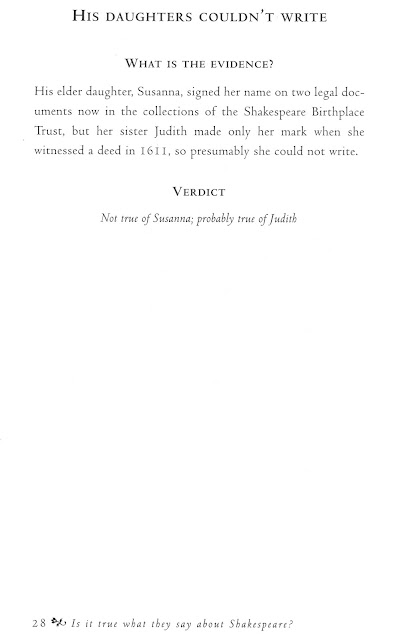Stanley Wells is one of the great popularizers of scholarship about Shakespeare. He writes clearly and entertainingly about both simple and knotty problems.
This volume is no exception. It's brief, but it's fascinating, and it's the kind of book anyone can dip into to get succinct, comprehensible answers to a number of questions commonly (and uncommonly) asked about Shakespeare.
I'm providing a number of examples below, starting with one I've investigated and written about before (for which, q.v.).
Some of the questions Wells addresses form part of the anti-Stratfordians arguments, like these that deal with the writing habits of his family:
Here's another question related to the argument that Shakespeare didn't write the plays attributed to Shakespeare:
The questions aren't all designed to put to rest the quibbles of the anti-Stratfordian camp (though there is an extensive section toward the end of the book that deals with a host of pretenders to the authorship of Shakespeare's works), but they are all enlightening—whether you're well-versed in the bard and his oeuvre or a relative newcomer to the man and his works. I recommend getting a copy to leave on your coffee table for everyone who comes into your home to dip into.
Click below to purchase the book from amazon.com
(and to support Bardfilm as you do so).
(and to support Bardfilm as you do so).

















